Case Study - Empowering Floriculture with Solar Energy Storage
- Kristin Eik Gustafsdottir

- Aug 21, 2025
- 3 min read
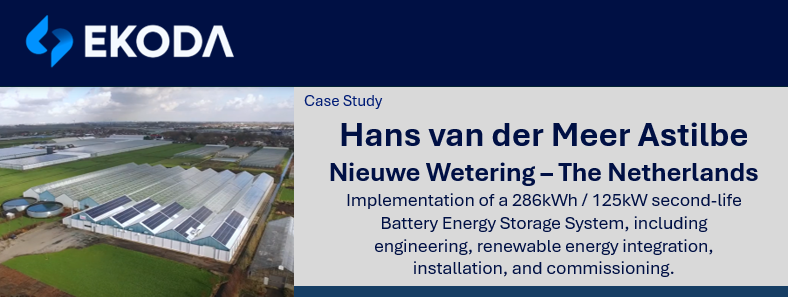
Located in a region of the Netherlands known for its horticultural heritage, Hans van der Meer Astilbe has built a reputation for producing high-quality Astilbe plants by blending tradition with innovation. As sustainability becomes increasingly central to modern floriculture, the company is taking proactive steps to align its operations with long-term environmental goals.
This case study explores how the installation of two BadESS energy storage systems (286kWh / 125kW), supplied by Ekoda and powered by second-life batteries, supports Hans van der Meer Astilbe’s mission to produce responsibly and operate more independently from the constraints of a capacity-limited local grid.
About the Grower
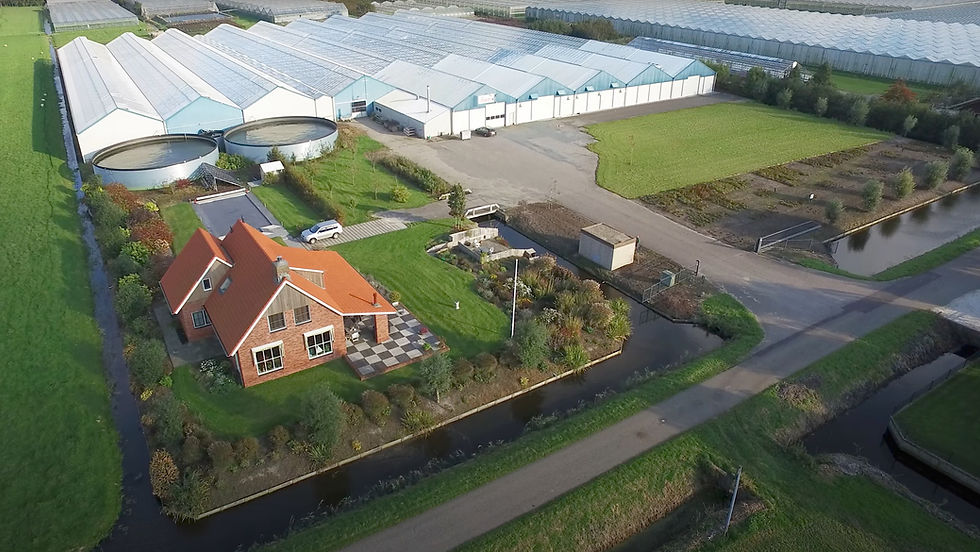
Hans van der Meer Astilbe is a family-run business dedicated to sustainable horticulture. Its environmental approach spans biological crop protection, efficient resource use, and socially responsible practices. The company holds multiple MPS certifications - MPS-A for environmental performance, MPS-GAP for good agricultural practices, and MPS-SQ for social accountability, underscoring its holistic commitment to sustainability.
The Challenge
Since 2015, the company has relied on rooftop solar panels to meet its electricity needs, an early investment that aligned with environmental ambitions and offered practical benefits, given the local grid’s limited capacity. To ensure energy availability during low-solar periods and as a contingency during outages, the company also installed a diesel generator, though it has rarely been used.
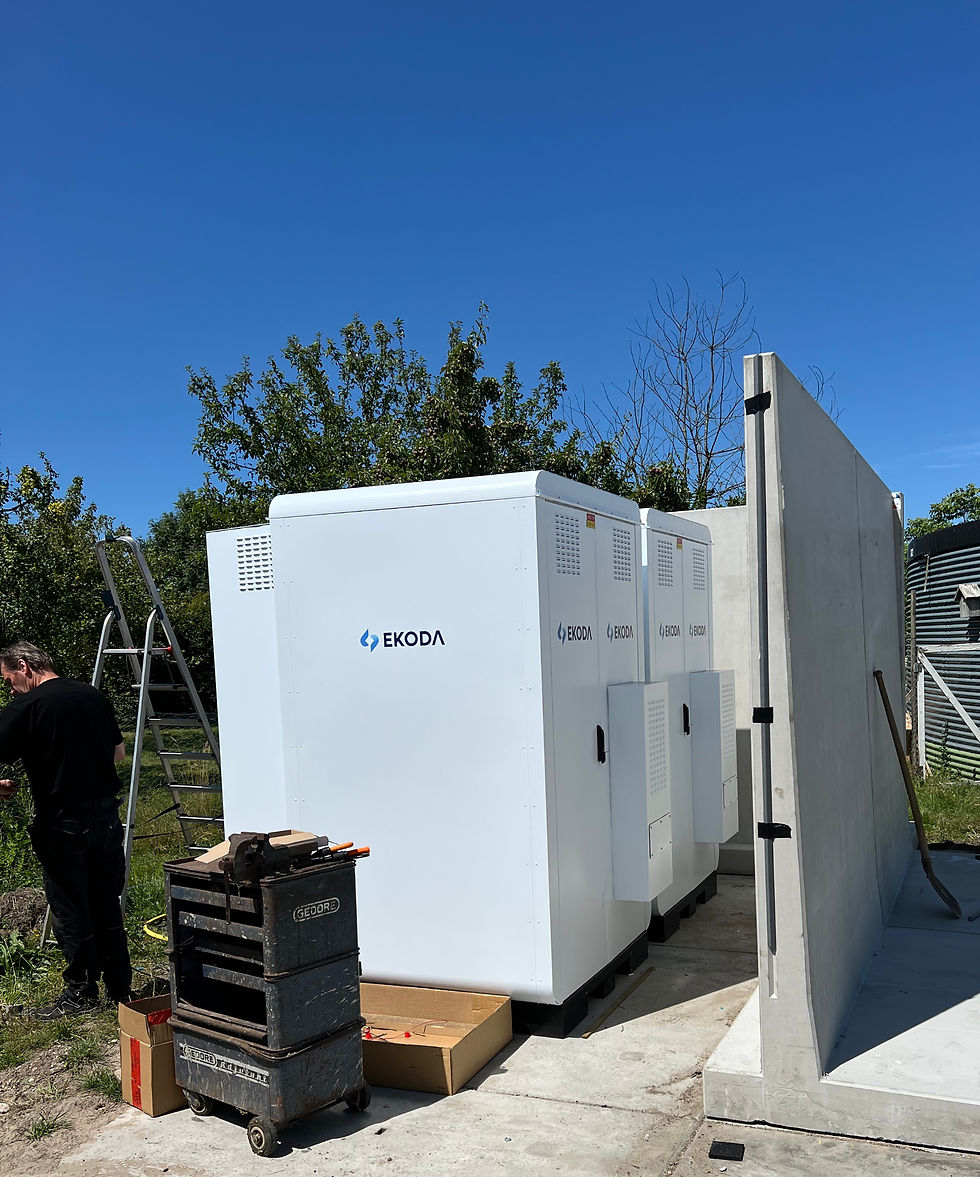
While solar now nearly covers daily energy needs during the high season, uncertainty around future net metering policies and the need for more flexibility within a constrained grid connection led the company to explore energy storage.
To increase energy self-sufficiency and reduce reliance on the grid, Hans van der Meer installed Ekoda’s Battery Energy Storage System. In line with its circular mindset, the company made a deliberate choice to use second-life batteries, giving used batteries a meaningful second application while reducing environmental impact.
This forward-looking approach supports not only energy resilience but also the company’s broader sustainability goals.
The Solution
Hans van der Meer Astilbe has long been committed to sustainable growing practices, and the integration of energy storage technology marks a significant step forward in optimizing its operations. The integration of Ekoda’s 286kWh / 125kW battery energy storage systems marks an important step in improving energy resilience and operational efficiency. The systems enable:
Smarter use of excess solar energy: By storing surplus solar power generated during the day, the system ensures that renewable energy is used more efficiently and extending its availability into the evening and cloudy periods.
Increased energy autonomy: The battery system enhances self-sufficiency by enabling more of the farm's energy needs to be met independently, reducing reliance on external power sources.
Reduced grid dependency: With stored energy available on demand, the facility can minimize its draw from the public grid, especially during times of high strain or volatility.
Peak shaving and load optimization: The BESS allows for better management of peak loads, reducing demand charges and ensuring a more balanced and efficient use of energy across critical growing operations.
Participation in flexibility markets: The system positions Hans van der Meer to engage in local flexibility markets, providing grid support services and potentially generating additional income while supporting a more resilient energy infrastructure.
The Results
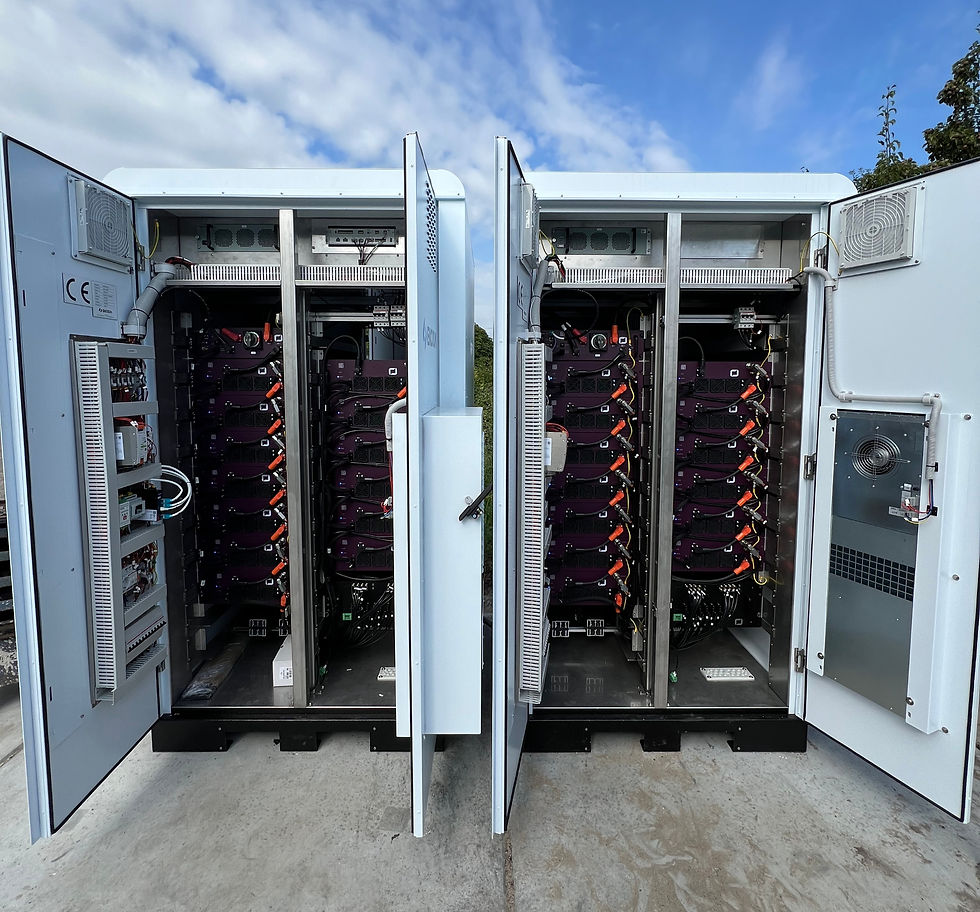
The integration of Ekoda’s Battery Energy Storage System at Hans van der Meer Astilbe marks a key step in the company’s journey toward energy autonomy and long-term sustainability. By enabling the storage and timed use of on-site solar energy, the system ensures that clean power is available when it’s most needed, including during cloudy weather, peak growing periods, and after daylight hours.
This enhanced flexibility allows the business to reduce its reliance on the public grid, minimize energy waste, and maintain stable operations even with a grid that has limited capacity. The BESS also supports participation in local flexibility markets, offering the potential to generate income while contributing to a more resilient energy infrastructure.
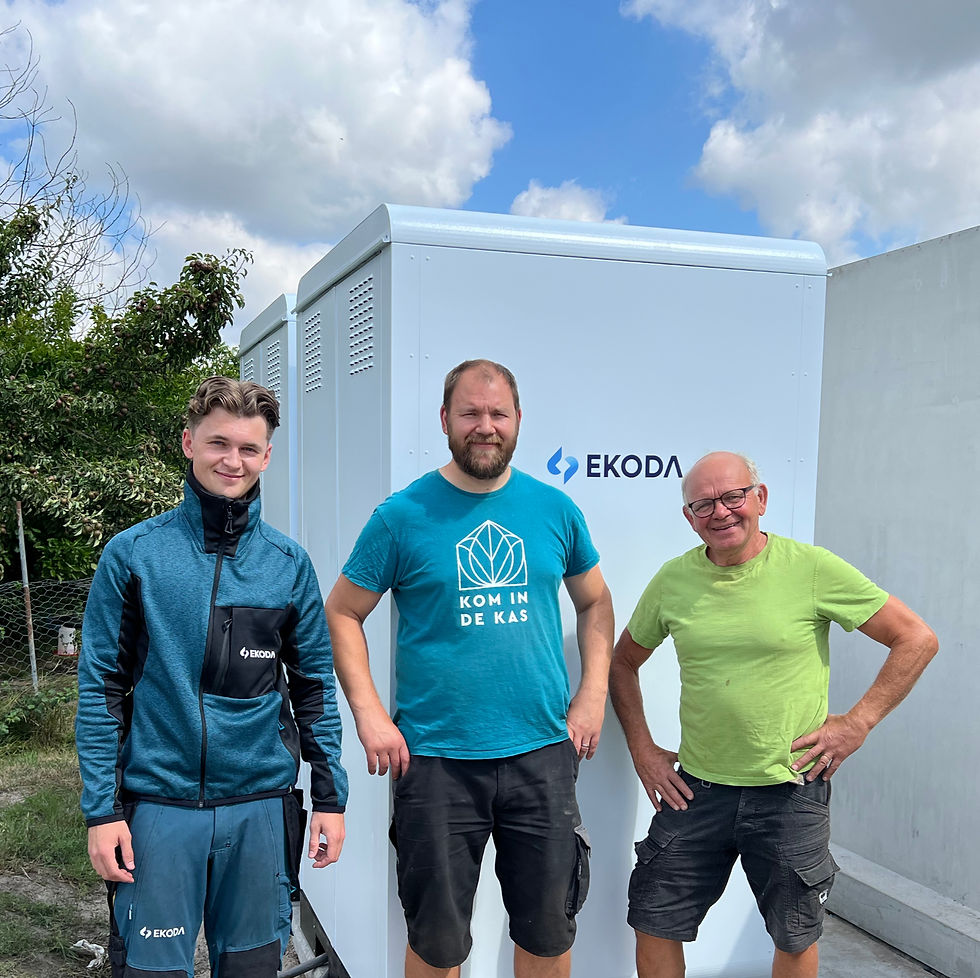
A deliberate choice to use Evyon’s second-life batteries reinforces the company’s circular values, extending the usefulness of existing materials and lowering lifecycle emissions without compromising performance. By integrating renewable generation with advanced, circular energy storage, Hans van der Meer Astilbe is not only optimizing its day-to-day operations, but also demonstrating how sustainable practices can be effectively implemented and scaled in modern floriculture.
This project highlights the tangible benefits of combining clean energy technology with responsible horticultural practices - resilience, efficiency, environmental stewardship, and serves as a model for others aiming to build a more sustainable future in the sector.
Conclusion
Hans van der Meer Astilbe exemplifies how sustainability and operational resilience can go hand in hand. By combining renewable generation, second-life battery storage, and responsible growing methods, the company has built a forward-looking model for sustainable floriculture.
Ekoda is proud to partner with growers like Hans van der Meer Astilbe, who are actively shaping the future of clean energy, one smart decision at a time.



